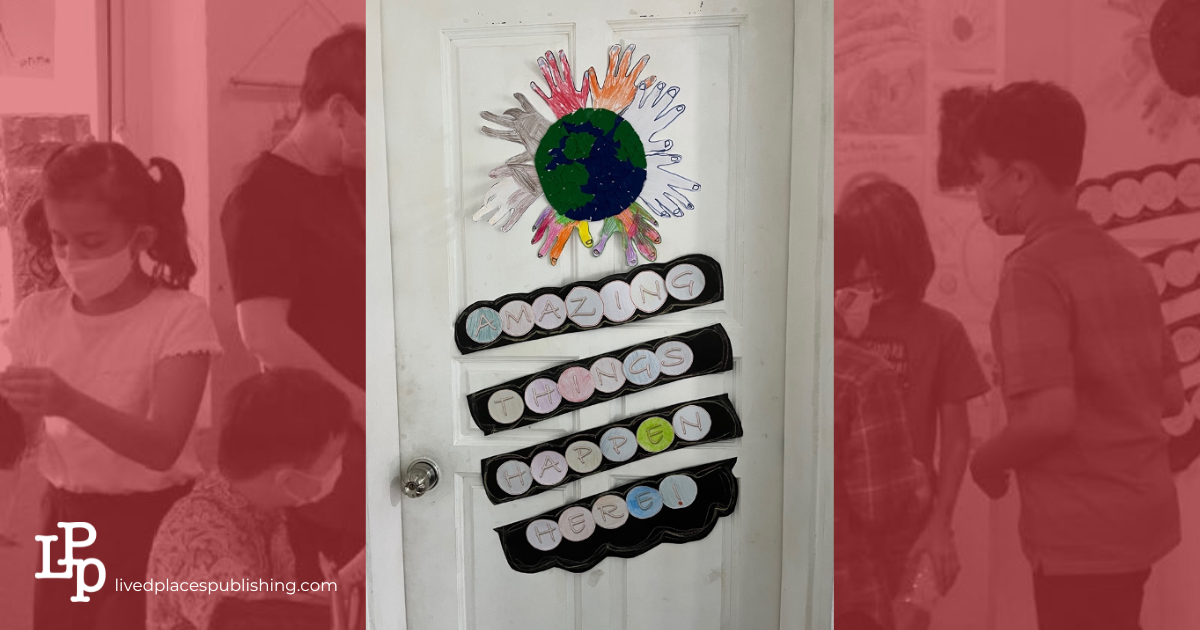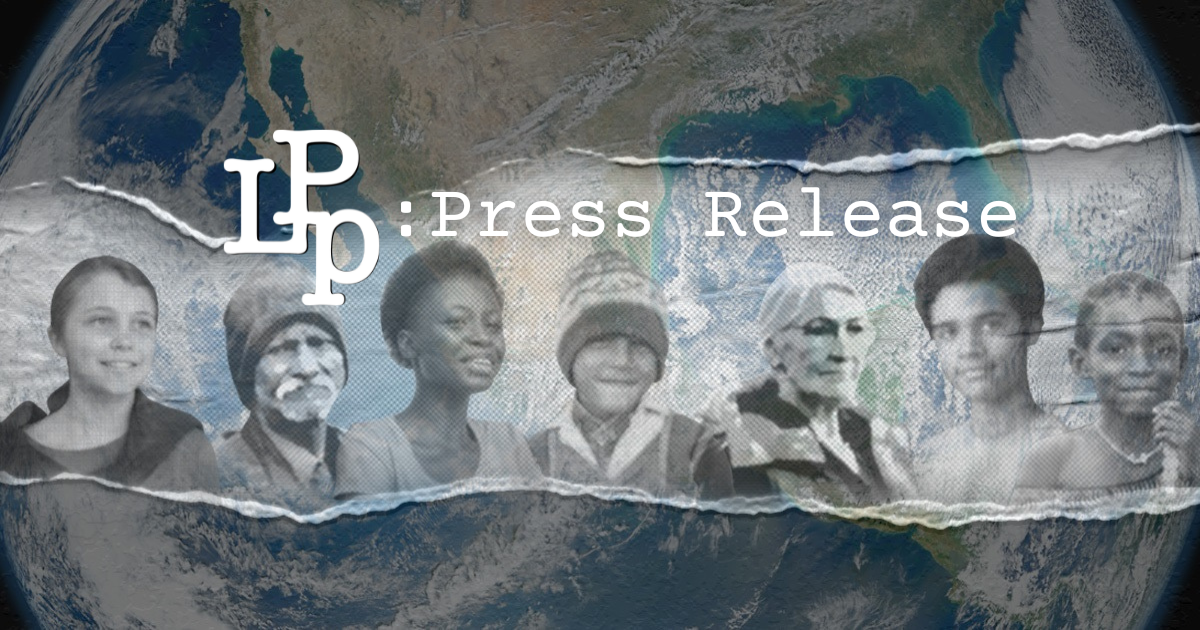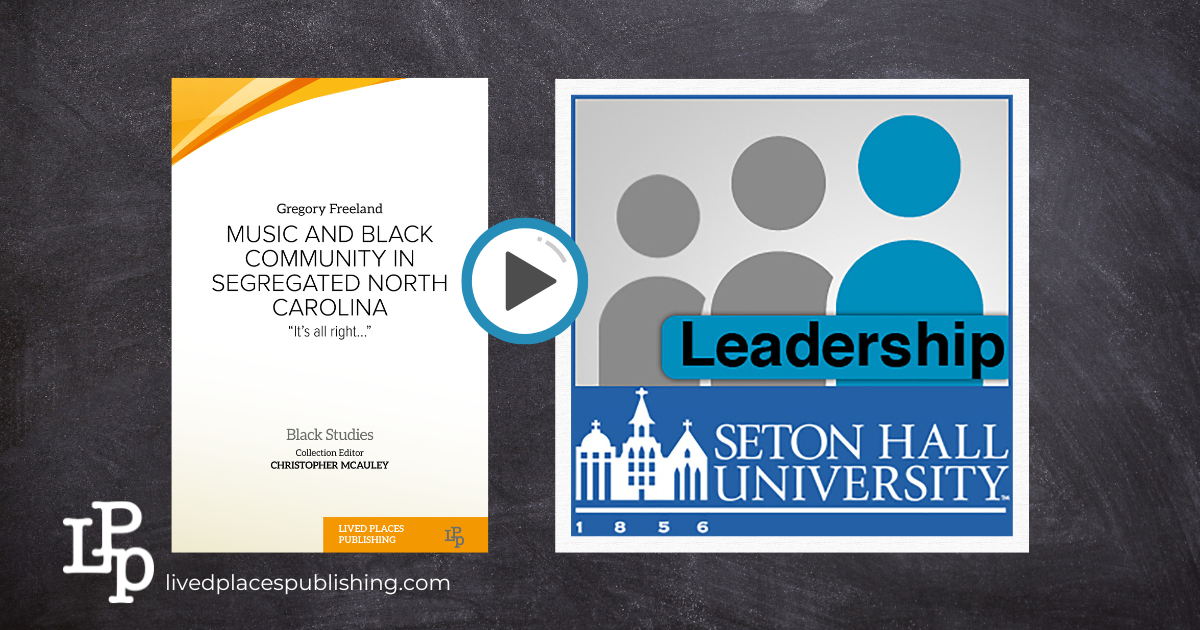New Book
Ending Educational Inequities
The COVID-19 pandemic reproduced forms of educational exclusions by reiterating a “grammar of schooling”, yet it also offered an opportunity for teaching professionals to use their creativity and brilliance to rewrite it. Pushing back on educational inequities, these stories offer hope of more just and inclusive classrooms now and in the future.
Lived Places Publishing Announces First Three Books in their Disability Studies Collection
Lived Places Publishing is proud to announce the release of the first three books in their Disability Studies Collection, aimed at promoting a deeper understanding of disability issues and advocating for a more inclusive society.
Gregory Freeland Interviewed on the “Leadership with Darrell W. Gunter” Show
Lived Places Publishing author Gregory L. Freeland was interviewed about his book, Music and Black Community in Segregated North Carolina.
Supporting Patients Living with Dementia: Adapting In-Person Methodologies for Digital Spaces
Lived Places Publishing authors Nicola Abraham and Victoria Ruddock introduce us to their new book, Supporting patients living with dementia during a pandemic: Digital theatre and educational spaces.
Topic Areas
Recent Posts
How to Inspire and Sustain Creative Resistance
by Cindy Horst
How do we remain hopeful to maintain ‘the energy to act’ when confronted with a daily onslaught of visual evidence of the worst in mankind? This requires a shift from an individual to a relational ethics that strengthens our response-ability.
Why Female Entrepreneurs Get Significantly Less Startup Funding than Men
While women own more than 40% of all businesses in the US, female founders receive significantly less in funding. There are steps we can take to close this funding gap for women in business.
The Forgotten in Care Homes: Older People with Dual Sensory Impairment
Older people who live with combined hearing and vision loss (also called dual sensory impairment) are not being recognised, diagnosed and supported due to low levels of awareness among community and staff. A donate-a-book program to a care home is one innovative way to get information into care facilities.
The Cost of White Shame and the Benefits of Moving Through It
by Sarah Eisner
White Americans have largely been silent or ignorant about the cognitive dissonance we live with, both today and passed down through our DNA, and the way it causes so much shame. Unprocessed and misunderstood, this white shame can show up as depression and paralyzing pain. Moving through it can be a powerful step toward antiracism, and is critical to our mental health.
Invisible Disabilities: Overcoming Biases and Other Outdated Notions
Invisible disabilities have long been viewed as being less severe than their visible counterparts, and this issue persists to this day. There is still the outdated notion that your disability must cause you physical pain or infirmity to be believed, accepted, and supported.
Overhauling the American Prison Industry: A View From 20 Years of Incarceration
LIVE EVENT: Nov 14, 2024 | In this conversation between Chris McAuley, Black Studies Collection Editor at Lived Places Publishing and Maurice Tyree, author of The Darkest Parts of my Blackness: A Journey of Remorse, Reform, Reconciliation, and (R)evolution (co-authored with Katie Singer), they examine the numerous problems and possible solutions to the disaster that is the American carceral state.








